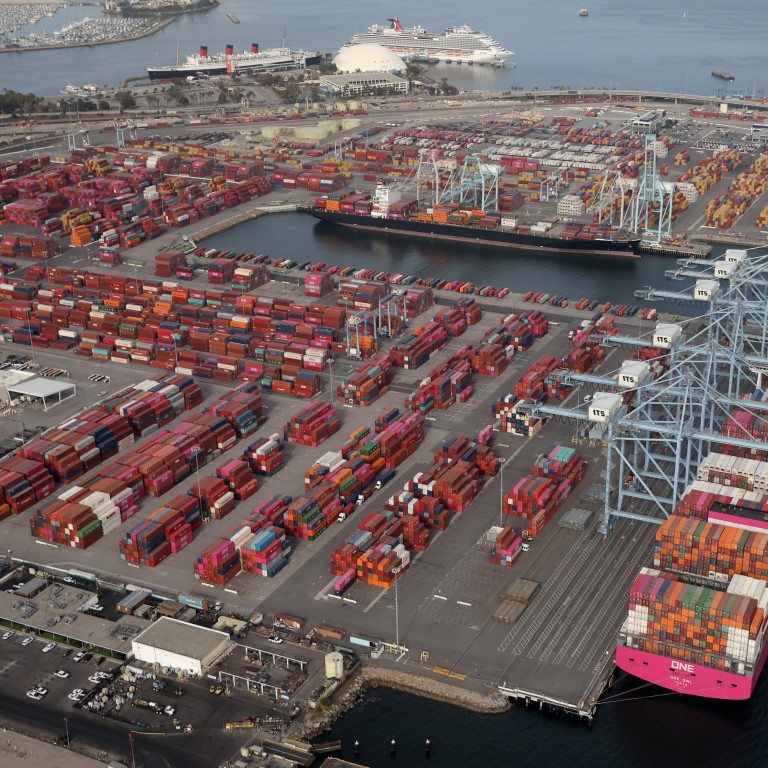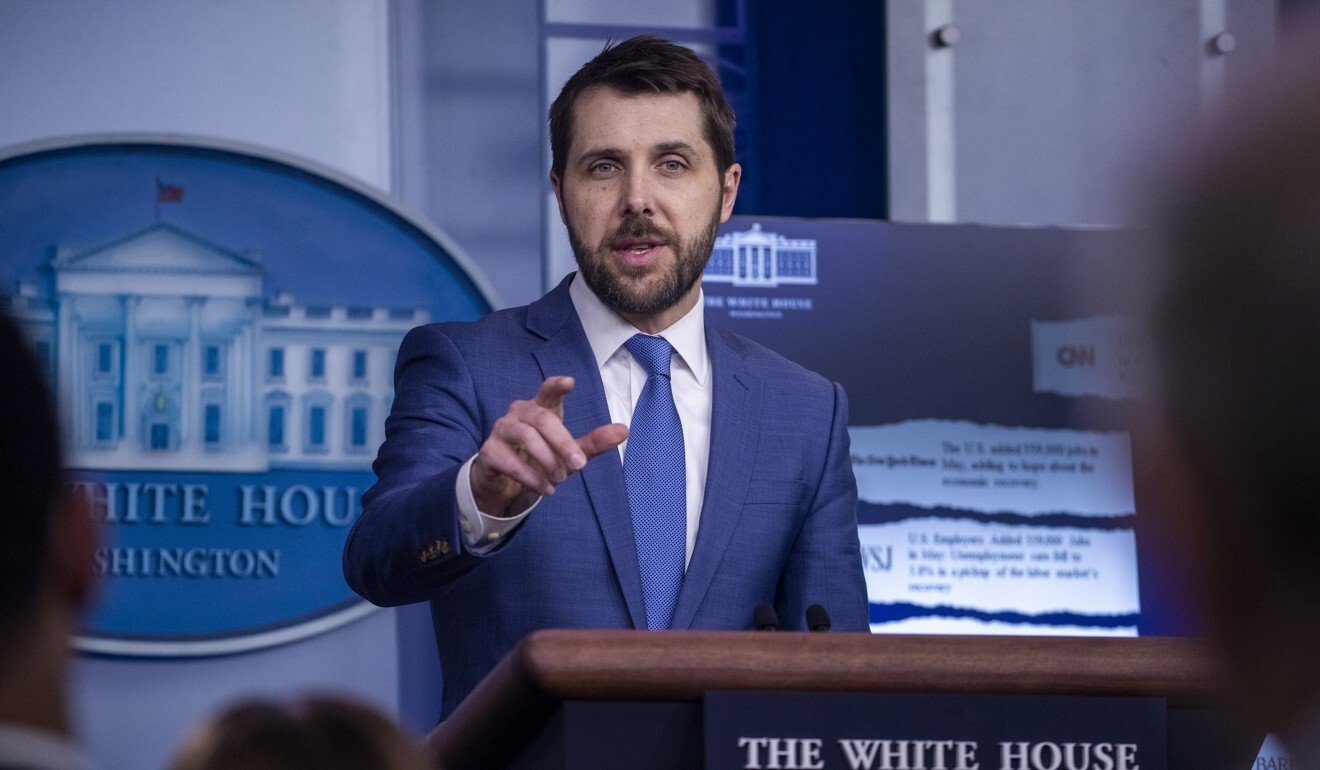
White House to discuss supply chain review results, but there’s no ‘magic bullet’ for US reliance on China and other countries, Biden administration says
- Biden administration says it will discuss the results of a review examining America’s reliance on foreign countries such as China for critical products
- ‘Some very concrete solutions’ were identified in the semiconductor supply chain, says White House’s top economic adviser
White House top economic adviser Brian Deese told reporters at a briefing that the administration will discuss supply chain problems more next week when the results of the 100-day review are released. The findings were due on Friday.
Deese said to address the semiconductor supply chain problems, “we’ve been spending enormous amount of time with industry participants up and down the semiconductor supply chain” and “have identified some very concrete solutions”.

03:29
US President Joe Biden vows China “will not win this race” amid electric vehicle rivalry
The review will also address short-term bottlenecks seen in recent months in housing, construction materials, transport and logistics, said Deese.
“As we anticipate those to be short-term, they’re still causing bottlenecks in different sectors of the economy,” said Deese. “You can expect the administration to be really laser focused on those places.”
“In short, I would say that a lot of these issues, there is no immediate magic bullet,” he said.
Supply chain vulnerabilities were magnified last year as the coronavirus pandemic spread. Shortages in medical equipment such as surgical masks, gloves and ventilators devastated frontline health care workers and took a toll on patients.
US-China trade deal: Washington unlikely to relent on Beijing’s commitments
More recently, a chip shortage forced US carmakers to cut production. Ford Motors cancelled shifts at two plants that make F-150 pickup trucks. General Motors, Honda and Toyota slowed production.
The US produces 28 per cent of the active pharmaceutical ingredients used domestically, according to a PwC analysis. In 2019, four of the six new semiconductor plants that opened globally were based in China, and none were in the US.

In announcing the executive action, Biden said the US needed diverse supply chains for its “economic prosperity and national security”.
Beyond the initial 100-day review, Biden also directed various agencies to begin a year-long study into how well America’s critical supply chains are organised. This includes areas such as technology development, food production, transport and energy products, public health and biological products.
Biden cuts two Huawei financing arms off from US investor access
“The requirement of a comprehensive review is bold and ambitious given the complexity of global supply chains,” said Ed Barriball, the lead analyst in a McKinsey report on supply chains.
“Our research has shown that the average large company has more than 5,000 suppliers across tiers … meaning each industrial base named for review … will potentially consist of hundreds of thousands of suppliers that need to be discovered and assessed,” Barriball wrote.
The US relies on global supply chains built over more than 75 years, starting at the end of World War II, the report said. To understand how to secure critical supplies, it will almost certainly require analysis beyond the year-long effort.

